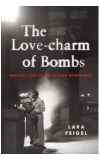
21 Jan 2013 20:02:33
In Britain, the second world war was prosecuted with rhetorical majesty by one of the great writers of the century, Winston Churchill. After the crisis of May 1940, the prime minister became a demanding impresario to a circle of literary men with corkscrew minds and an appetite for jeopardy, from Ian Fleming to Stephen Spender. "We were a generation," Graham Greene later wrote in Ways of Escape, "brought up on adventure stories who had missed the enormous disillusionment of the first world war, and so we went looking for adventure."
Books and writers became braided into the plot of war. TS Eliot, JB Priestley, EM Forster and George Orwell all went in front of BBC microphones. The home front would never generate the electrifying poetry of the trenches, but it was still a highly charged moment for a generation of 30s writers accustomed to publishers' lunches and mistress dinners at Rules restaurant.
If there was one domestic experience to match the horror of the trenches, it was the blitz, a metropolitan trauma unknown to Wilfred Owen. The Nazis' terror bombing of London began on 7 September 1940. The novelist William Sansom captured the image of the blitz: "that black London roofscape silhouetted against what was to become a monotonous copper-orange sky".
The worst phase of the bombing continued until May 1941, when there was a lull. During these months everyday life went haywire. Many Londoners took the opportunity to play truant from their responsibilities. Malcolm Muggeridge remembered the blitz as a "protracted debauch, with the shape of orderly living shattered, all restraints removed, barriers non-existent". Here was a mise-en-scène perfectly tailored to the wartime writer's search for contemporary material, an idea Sarah Waters has also explored in her 2006 novel The Night Watch.
Lara Feigel, a young critic, has transformed this insight into an absorbing and well-researched group biography of five prominent writers who responded imaginatively to the nightly routine of sirens and barrage: Elizabeth Bowen, Graham Greene, Rose Macaulay, Hilde Spiel (an Austrian writer trapped in wartime Wimbledon) and Henry Yorke (better known as novelist Henry Green). Regrettably, Feigel does not confine herself to these lives in wartime, but tries to encompass their postwar careers as well. A shorter, tighter book might have been even more successful.
However, she does connect the making of three classic English novels – Caught, The Heat of the Day and The End of the Affair – to the blitz, and through the lives of their authors unfolds a fascinating home front story. She persuasively demonstrates that London in 1941 sponsored all the sensations usually found on the battlefield.
Above all, the blitz was lethal and remorseless. Some 40,000 civilians died, more than half of them in London. The autobiographical hero of Green's Caught confesses: "all that was real to him was his death in a matter of days". Perception traumatised reality. Everyone responded to the thrill. Bowen pictured the "inscrutable canyons" of the city under a terrifying blackout.
Graham Greene revelled in this atmosphere: "there was something rather wonderful about London in the blitz, with no street lights, no traffic and no pedestrians to speak of: just an empty dark city, torn with great explosions, racked with ack-ack fire, lit with lurid flames, acrid smoke, its air full of the dust of fallen buildings". Writers such as Bowen were also discovering that, in extremis, war is a great leveller. "We are almost a commune," she wrote. "All destructions make the same grey mess."
Feigel is particularly good on the erotic corollary to the blitz: wartime passion. All her subjects made love to the detonations of high explosives. Greene's life became so entwined with the stage designer Dorothy Glover that she was sometimes mistaken for his wife. Henry Yorke/Green used Caught to ponder the relation between love and death in the character of Prudence. "War, she thought, was sex." According to Feigel, women preparing for a night out during the blitz used to ask one another, saucily: "Is he someone you'd like to die with?"
In a telling reversal, Evelyn Waugh, fighting in Dakar, became jealous of fellow writers "fighting fires day and night". He complained that regular soldiers had become "like wives reading letters from the trenches". Certainly, Rose Macaulay, whose Towers of Trebizond had its origins in the blitz, was explicit about the larger significance of her experience. The blitz, she wrote, "was a sample of total war". Indeed, the skies of wartime London were never quite free from terror. January 1944 saw the start of "the little blitz", followed by Hitler's "secret weapon", the V1 and V2 rockets.
Strangely, Feigel, who has trawled an extraordinary range of sources to develop this story, does not mention the most significant German hit made on an English literary man. In June 1944, George Orwell's flat in Mortimer Crescent was destroyed by a doodlebug. He moved to Canonbury Square and began to write Nineteen Eighty-Four, drawing freely on London's atmosphere of terror. Winston Smith's affair with Julia must be the strangest literary love-child of the blitz.

